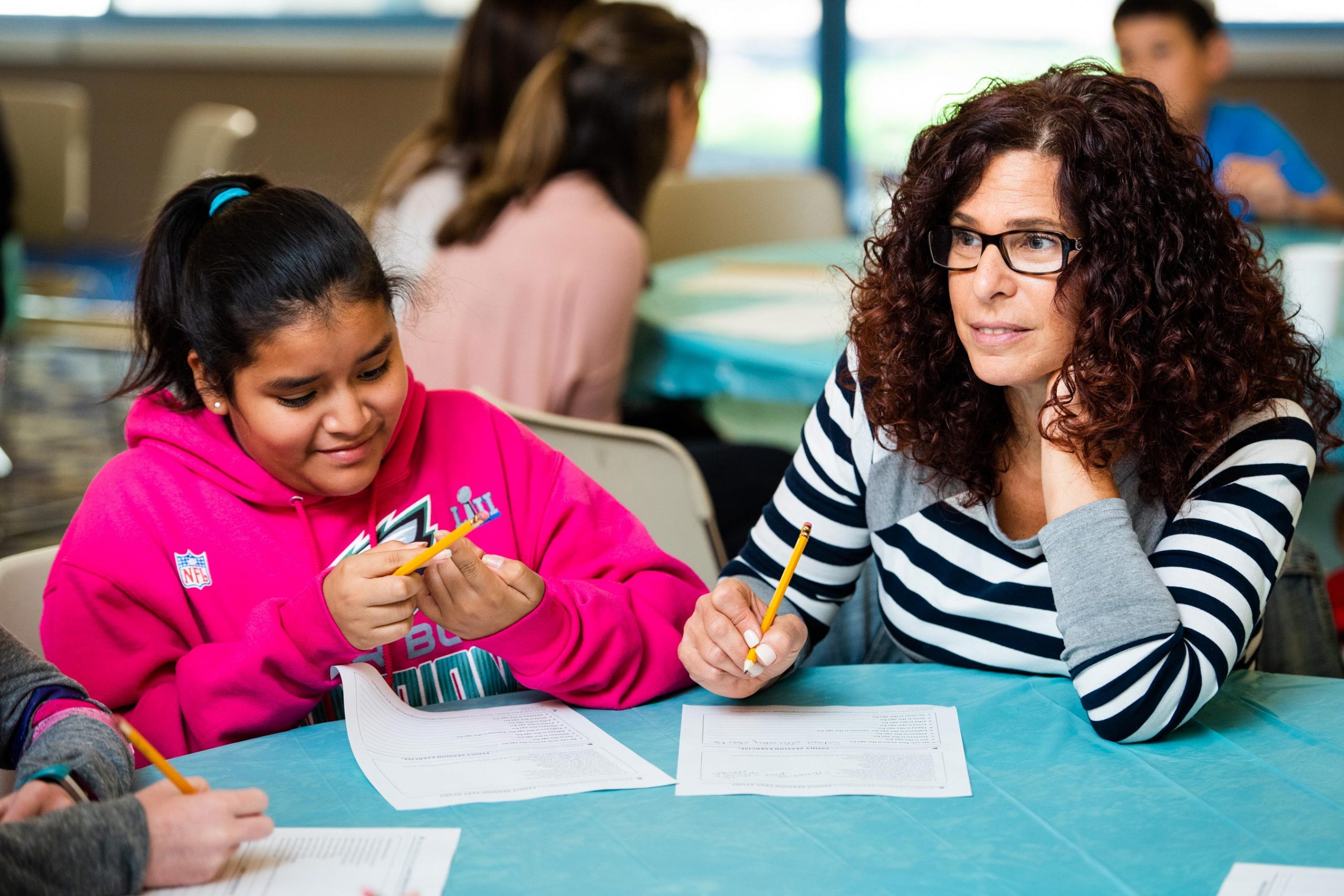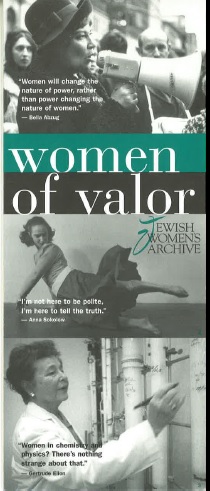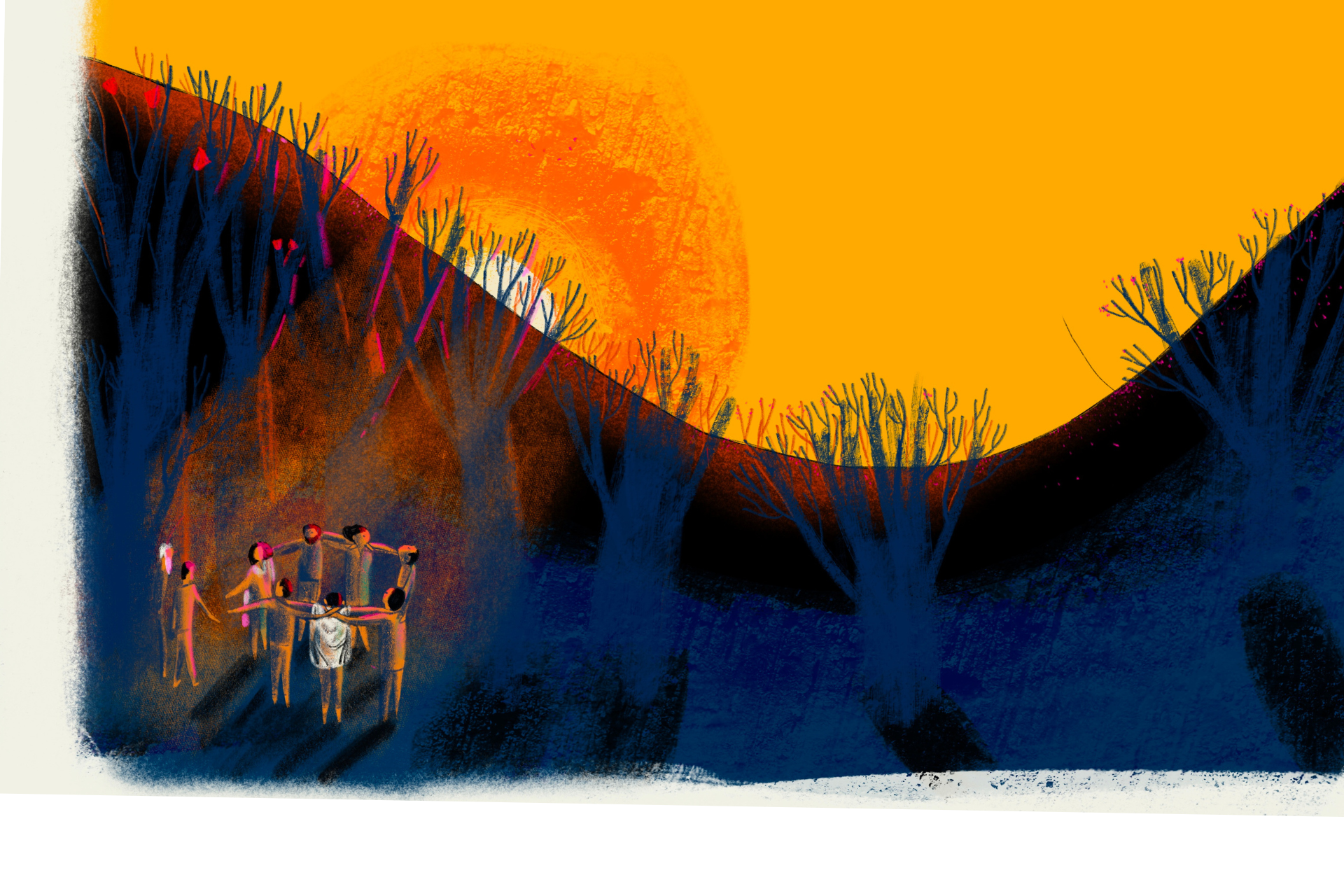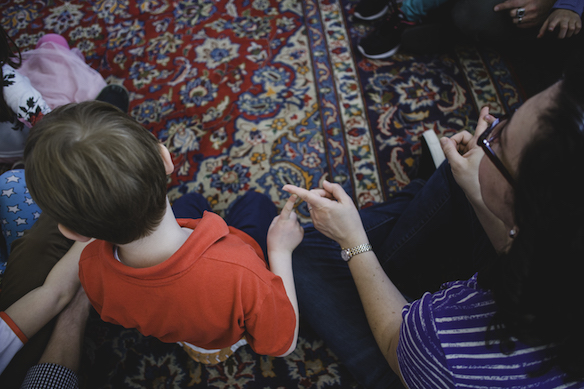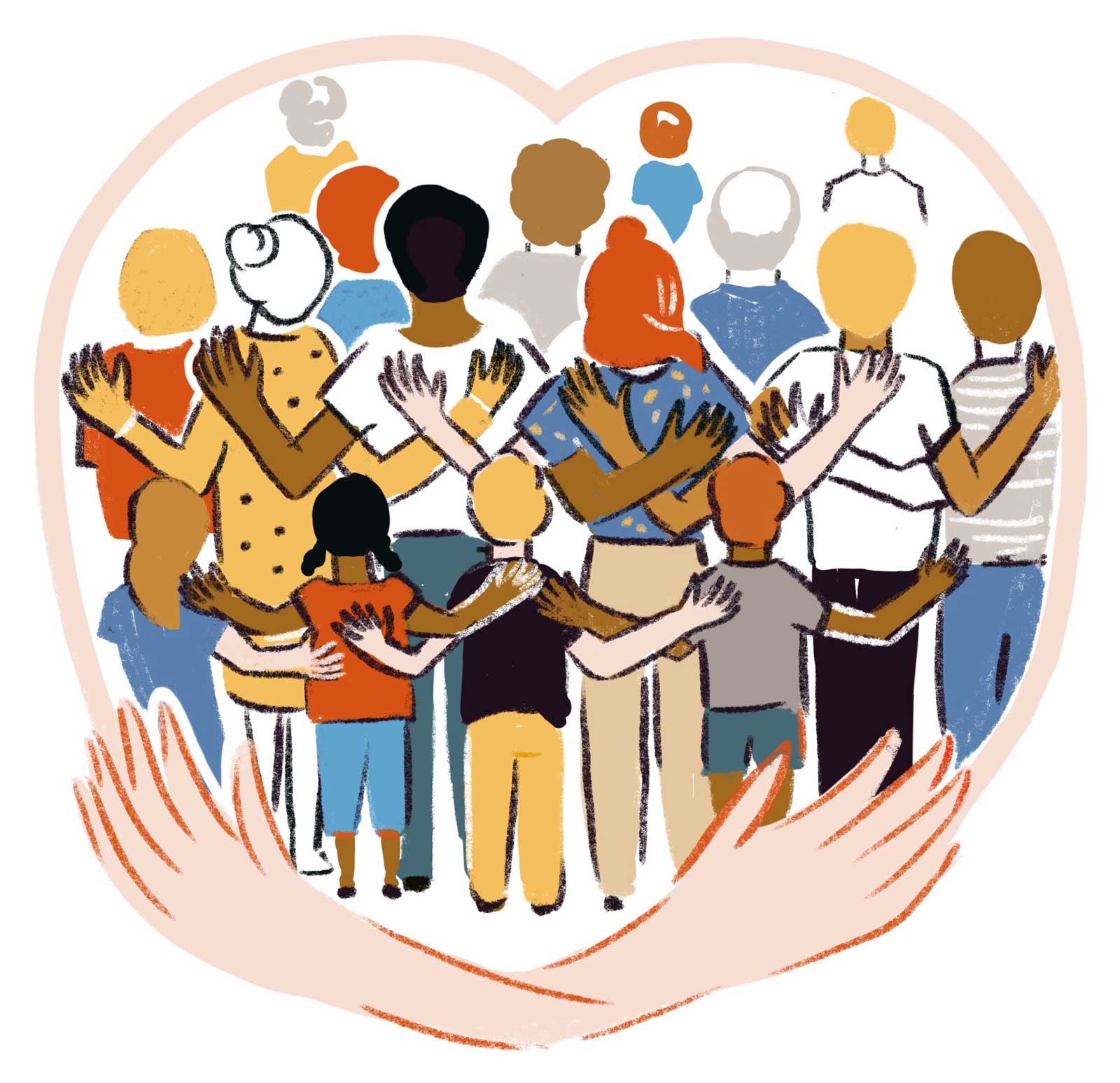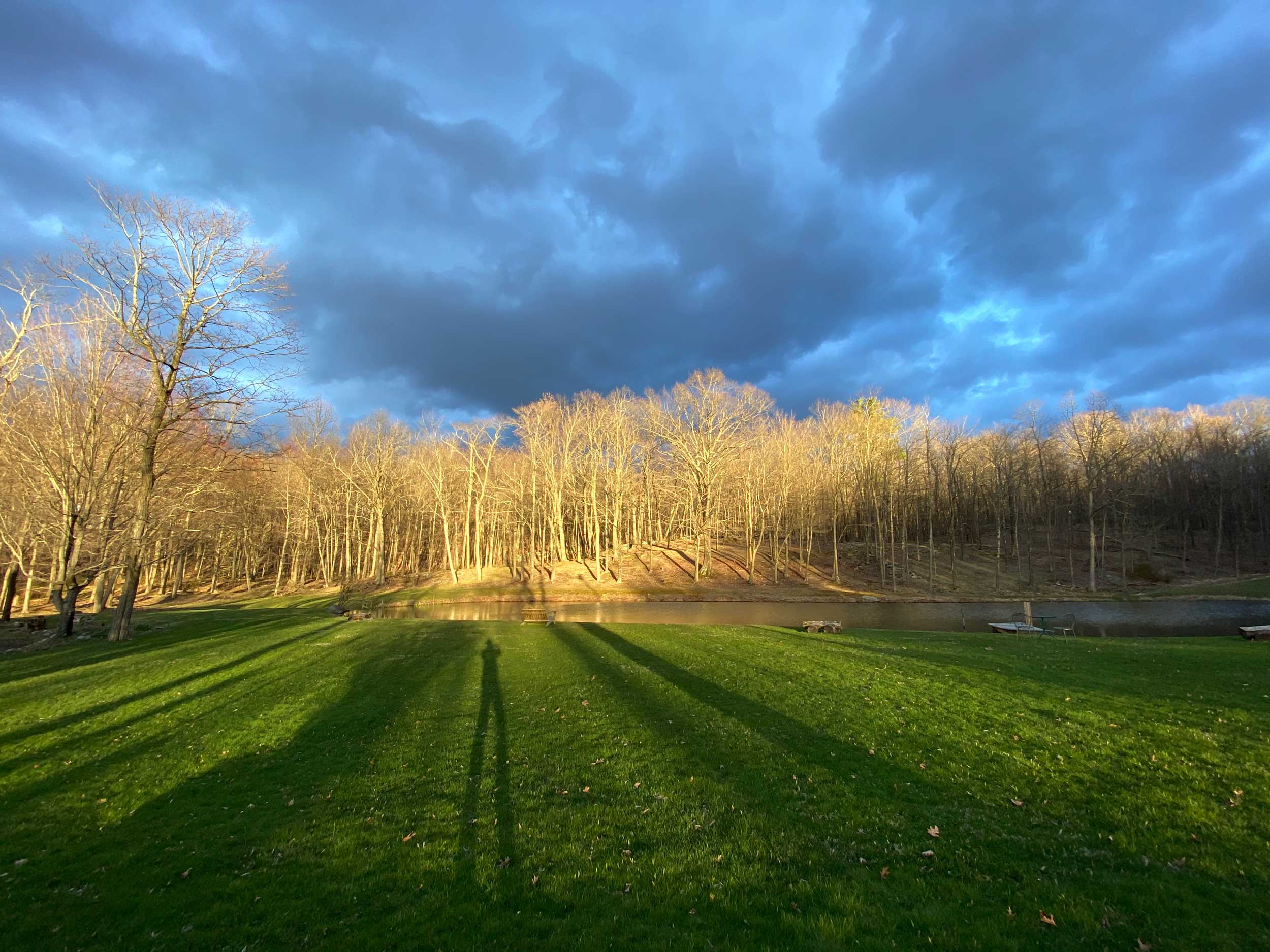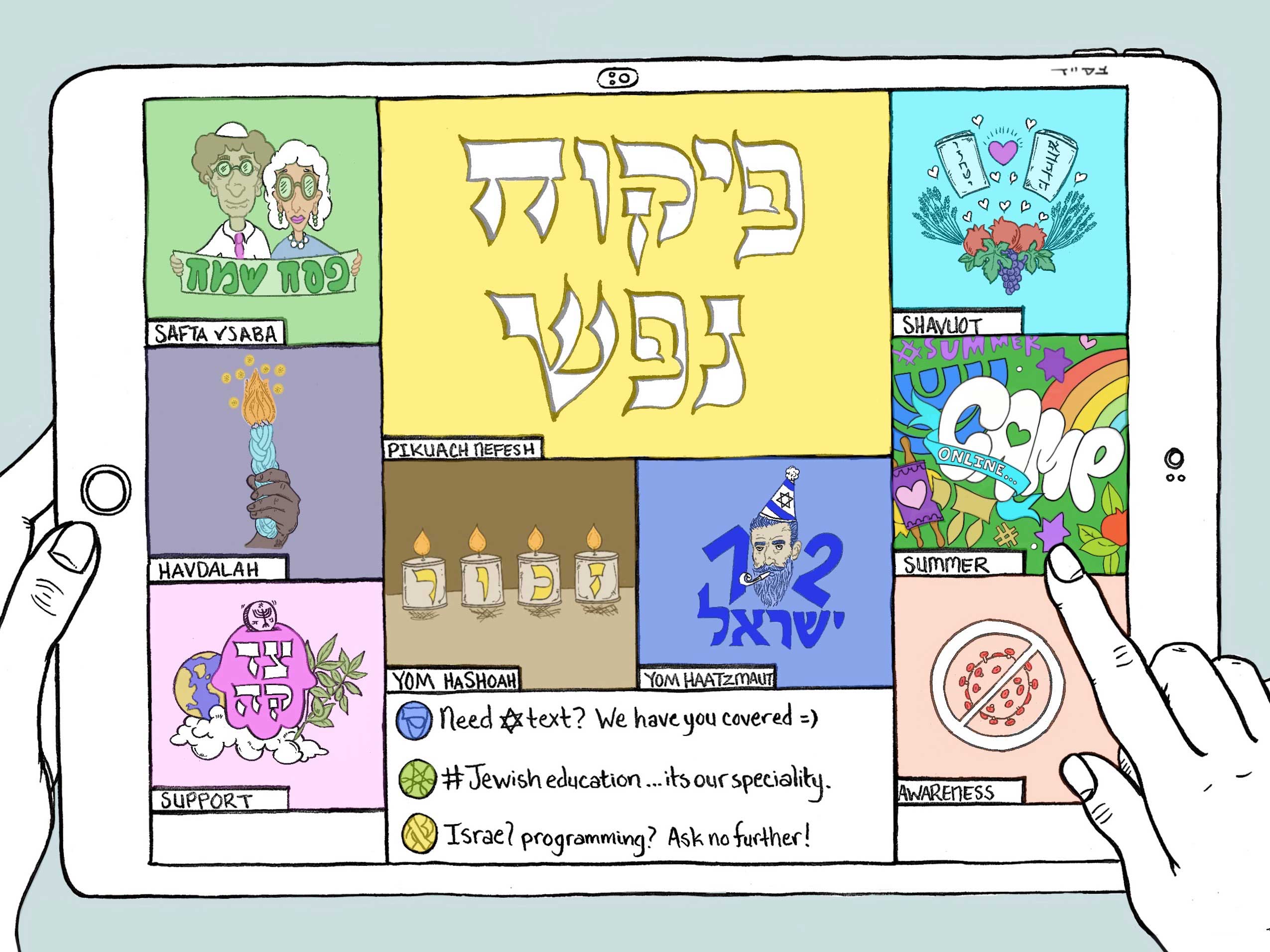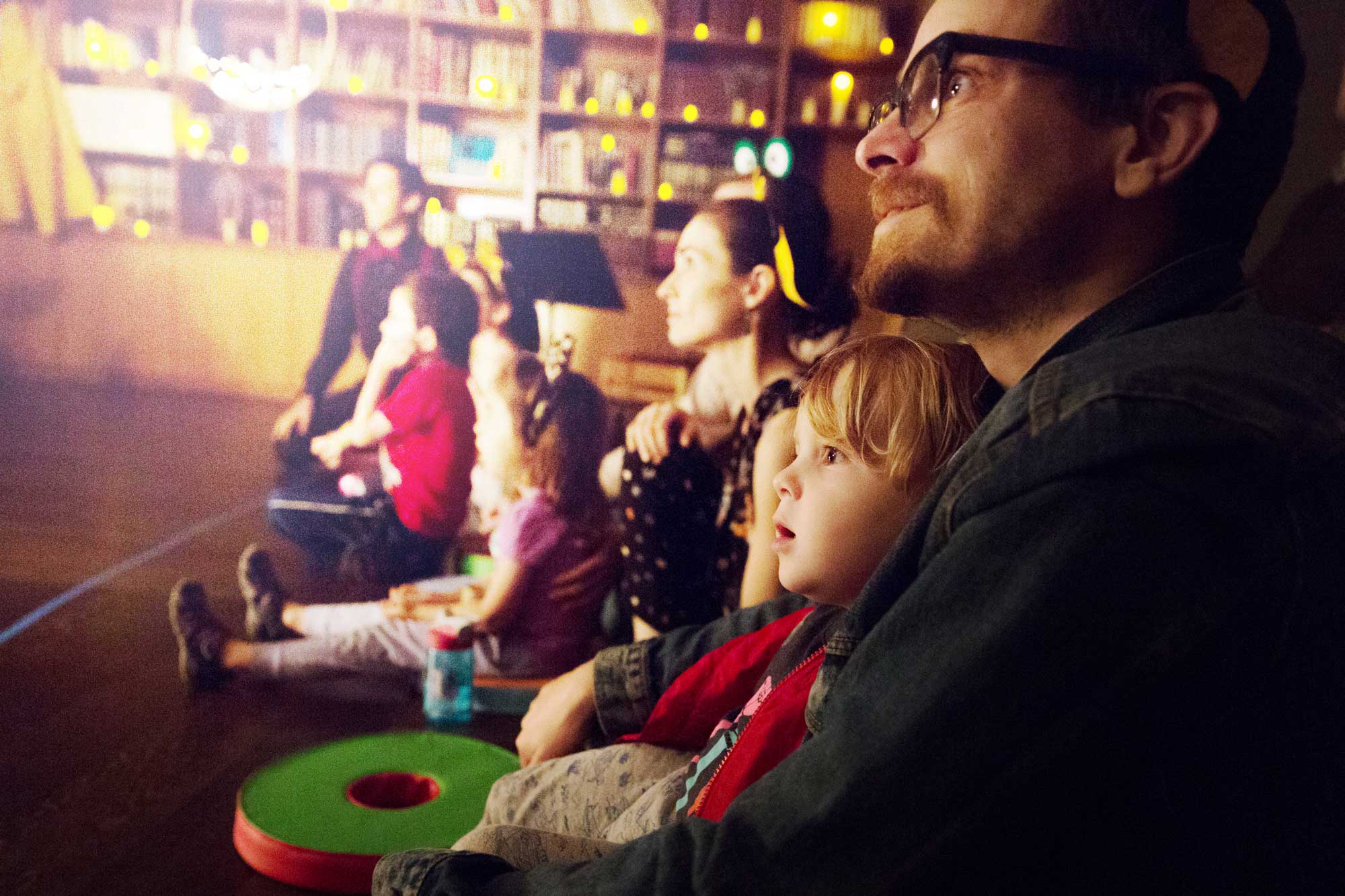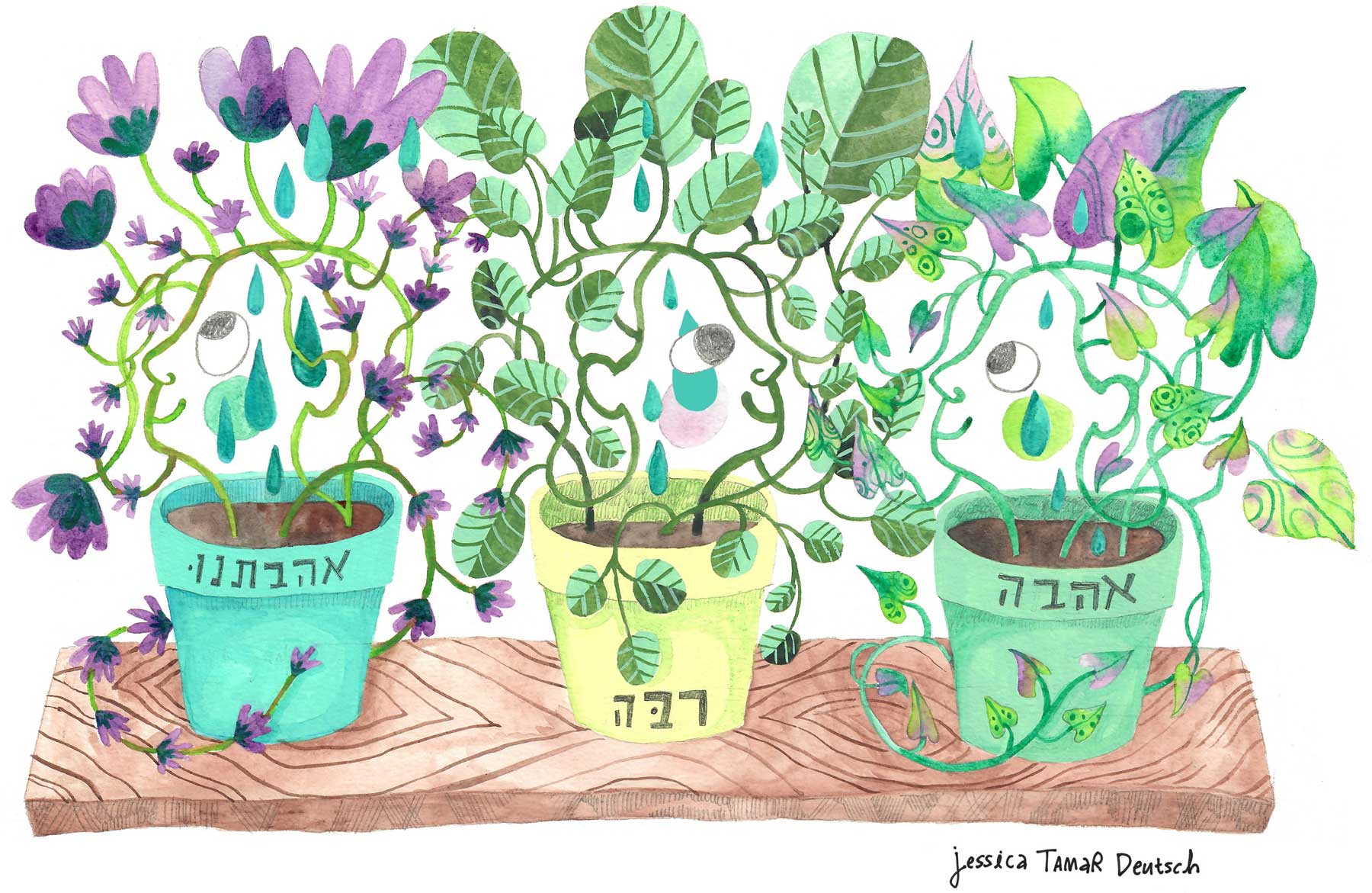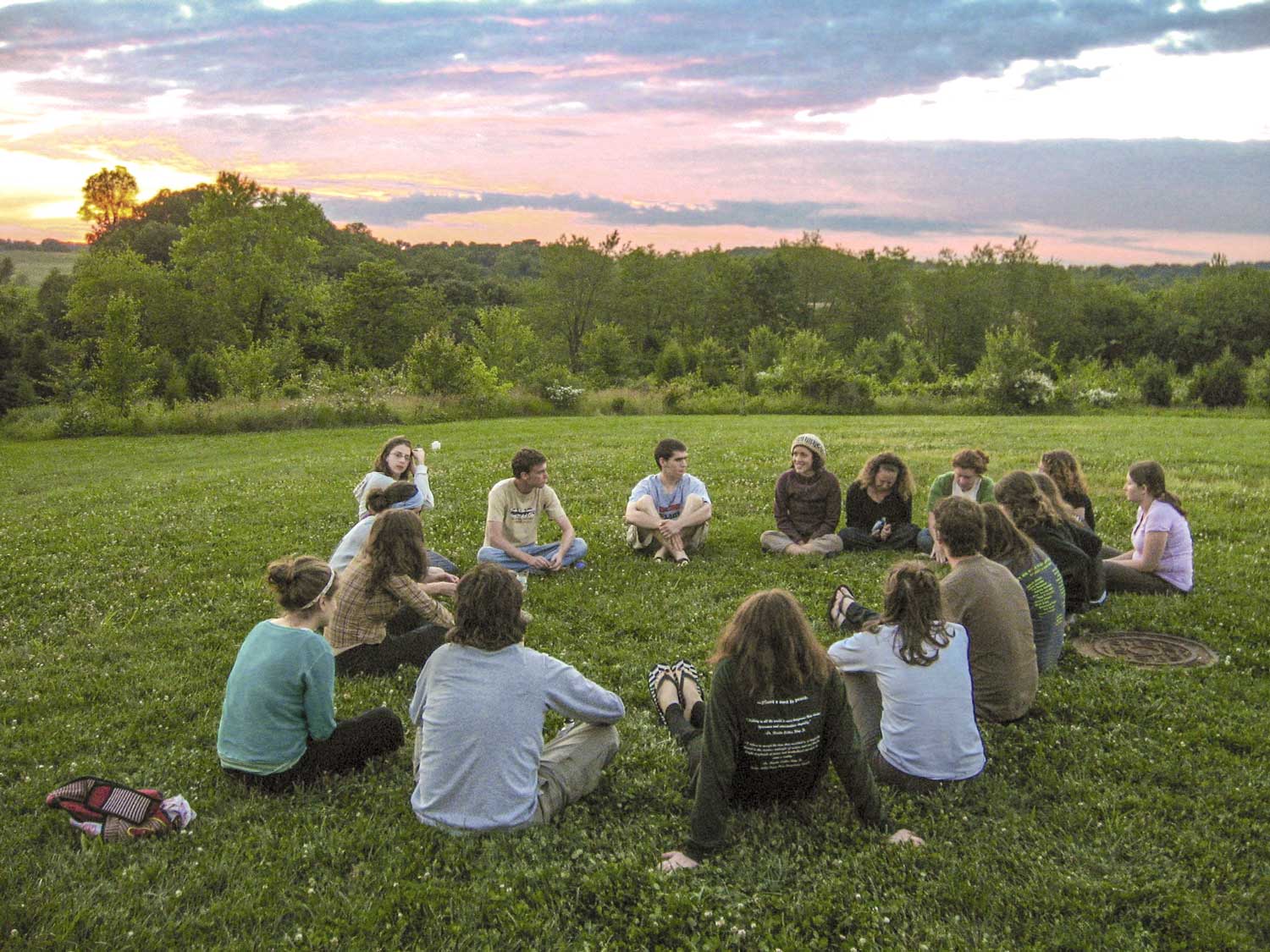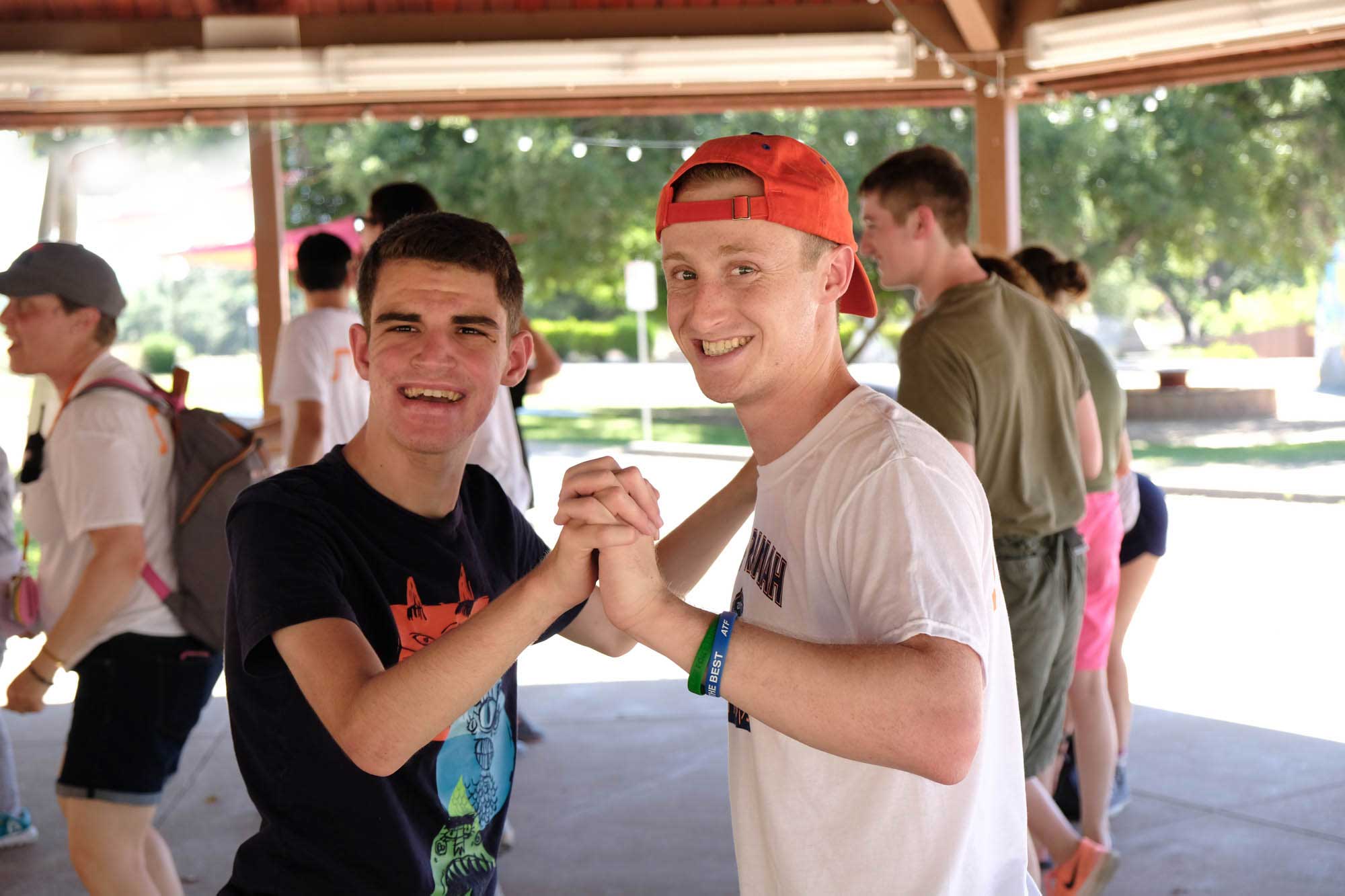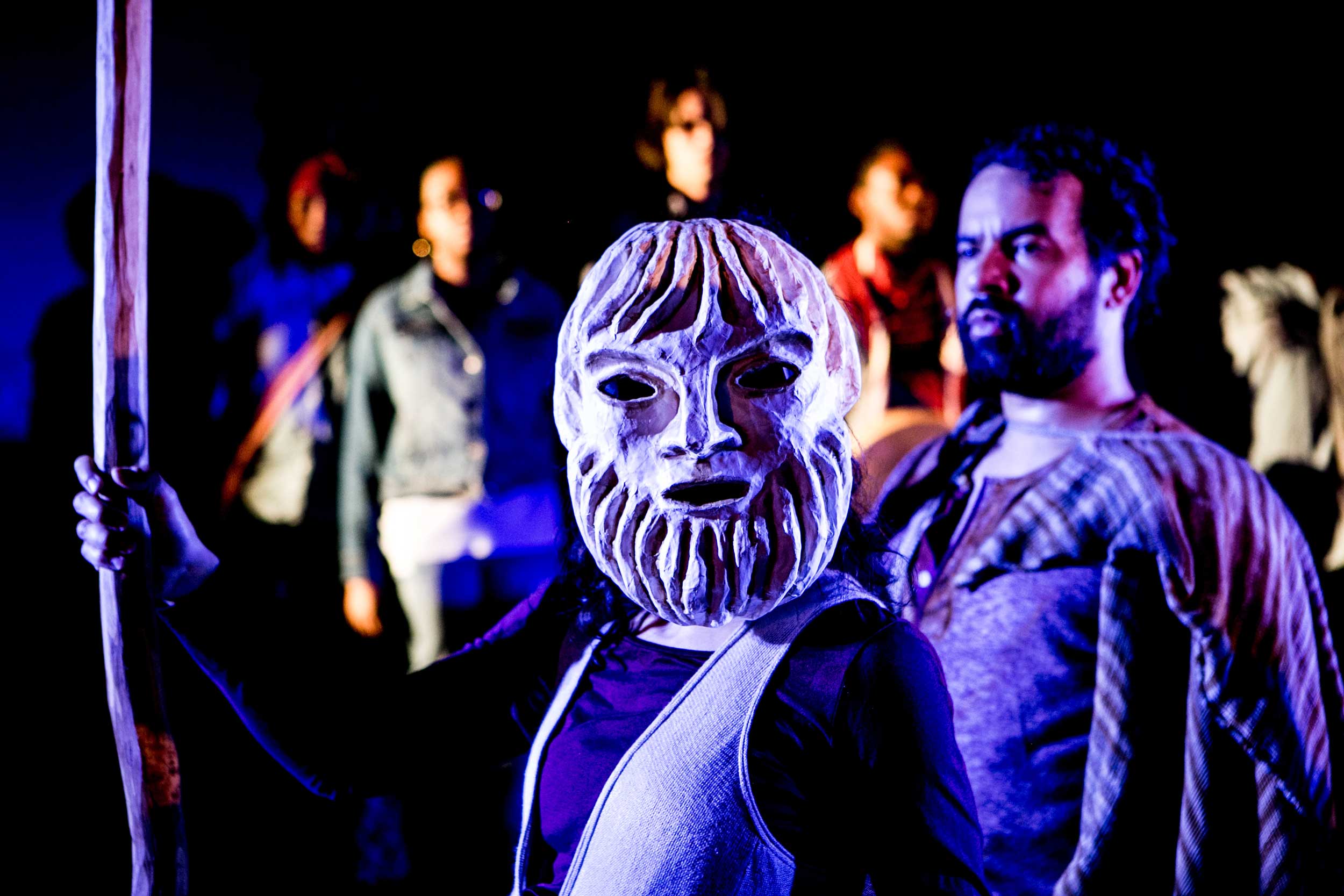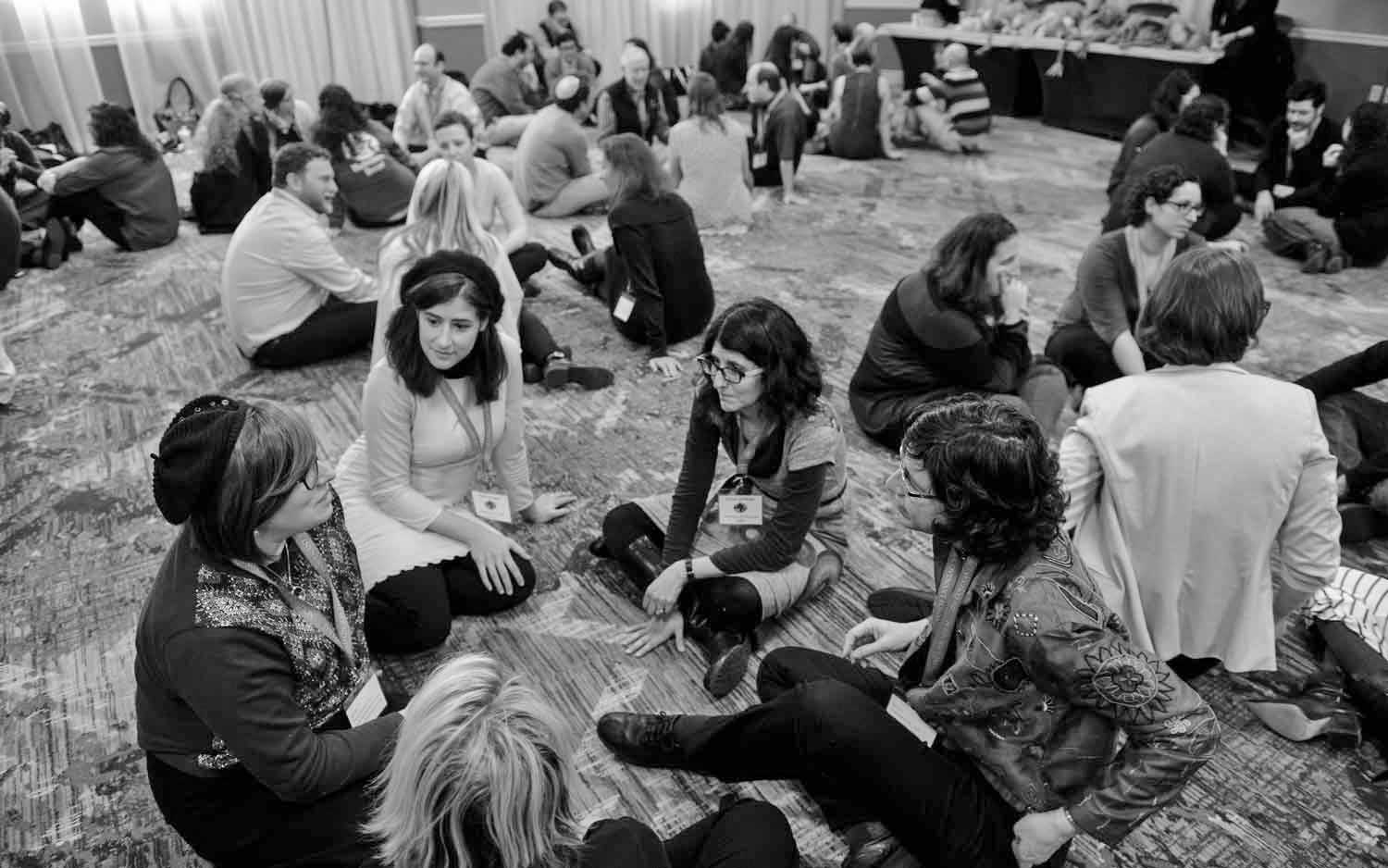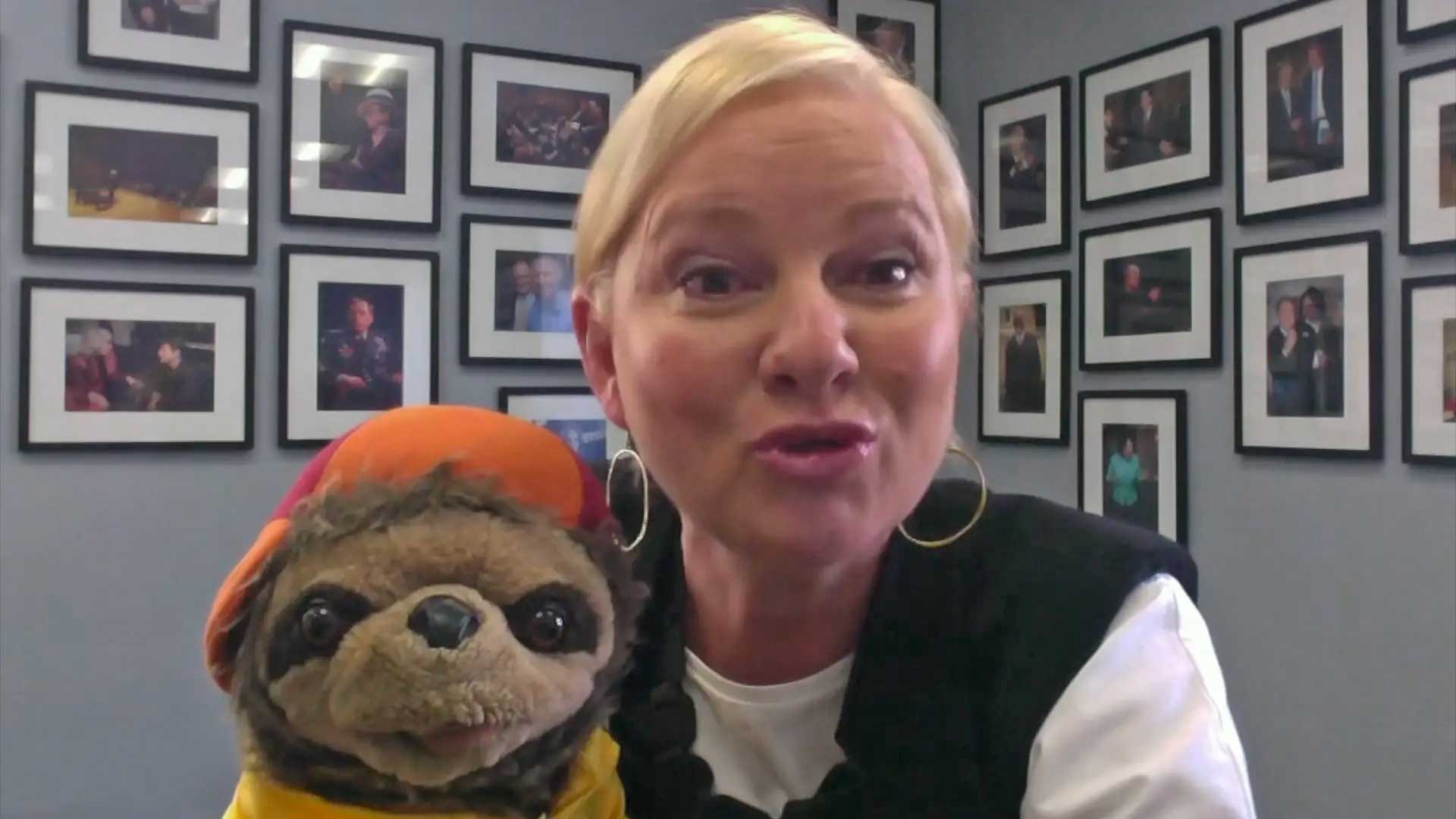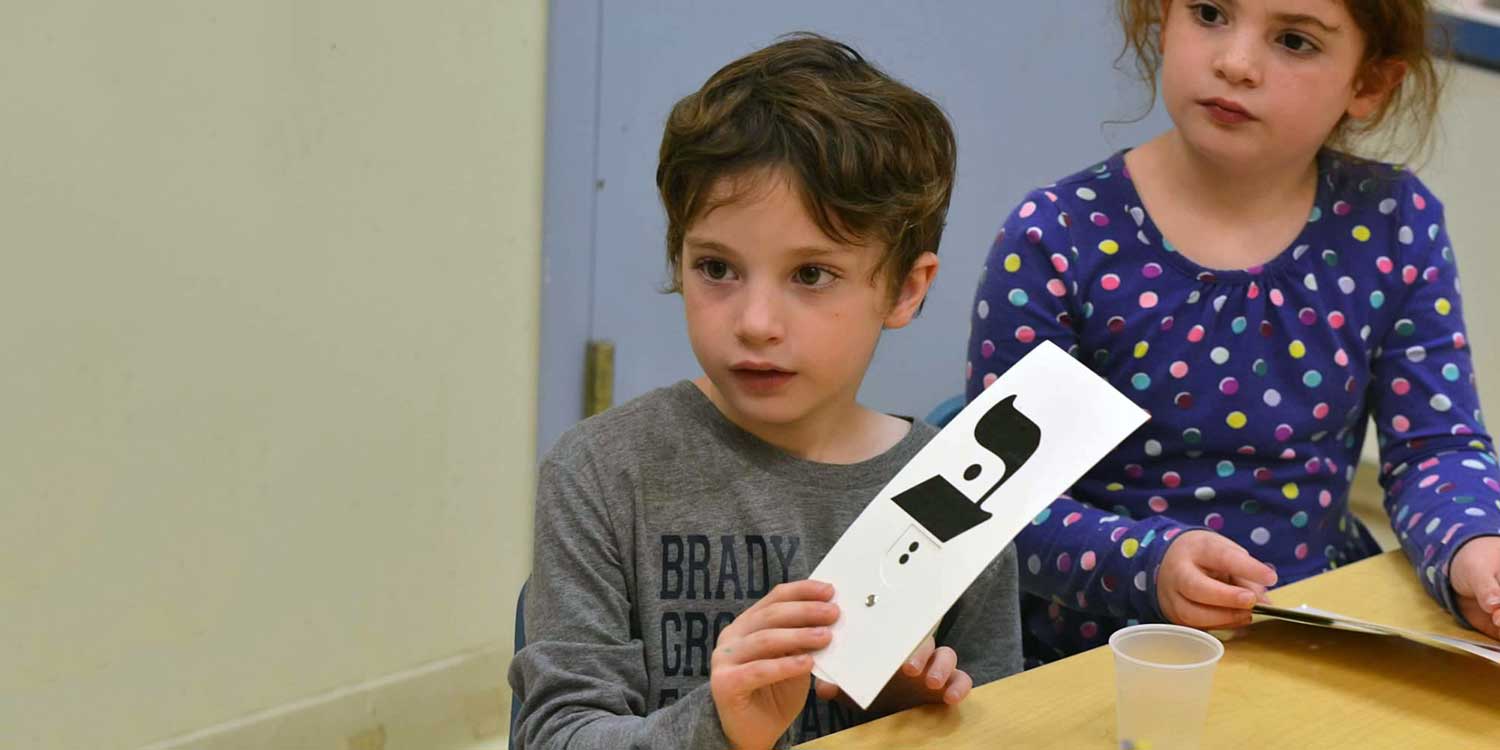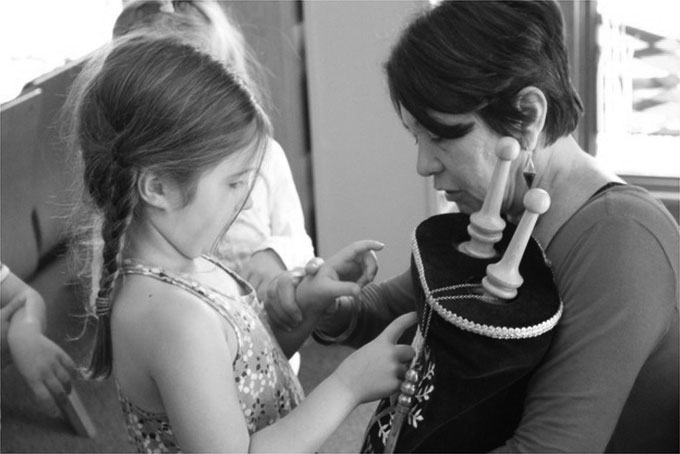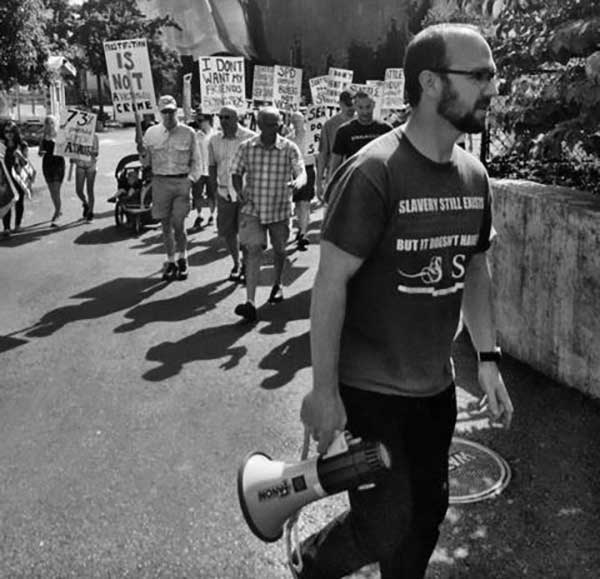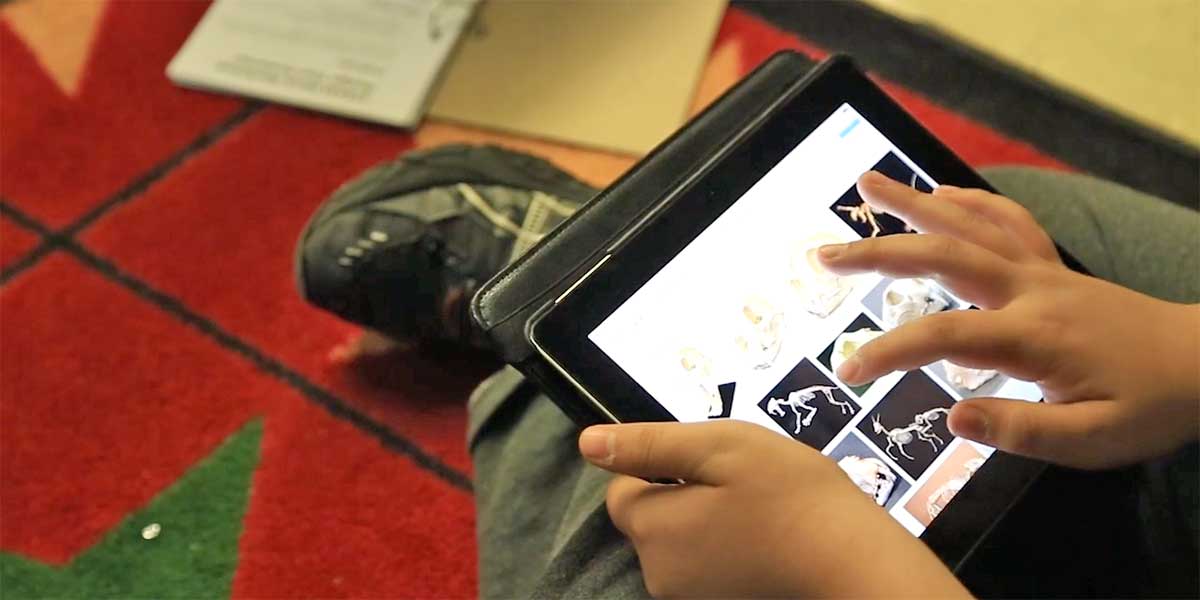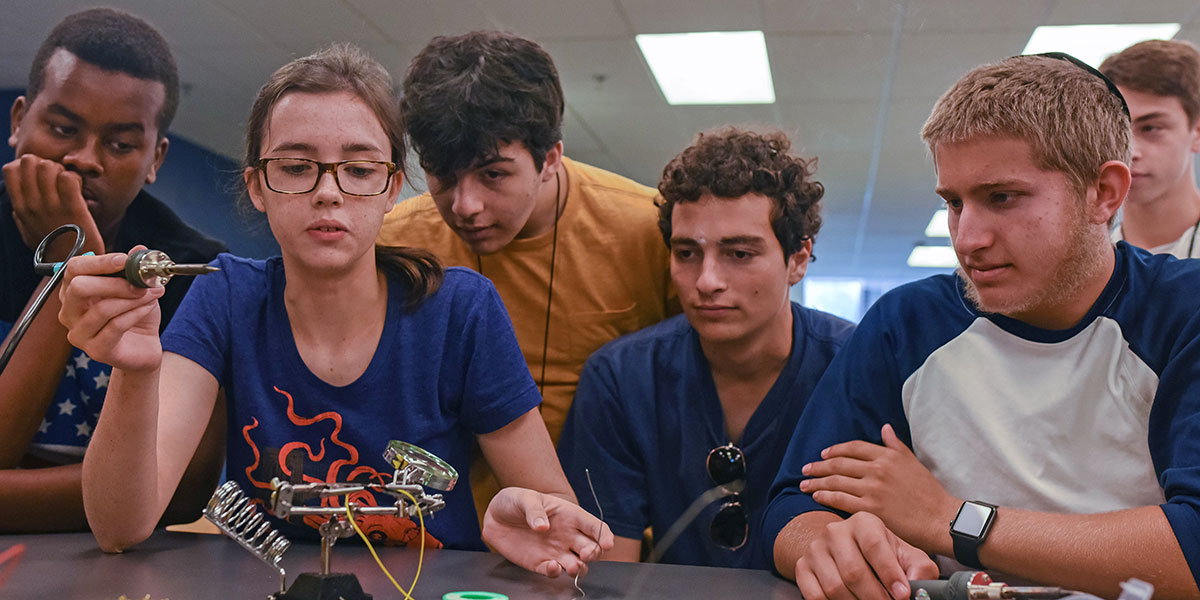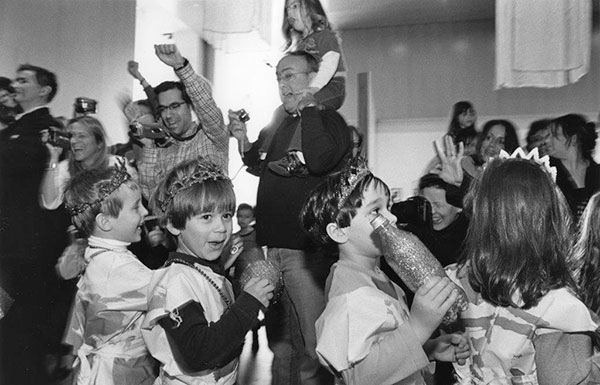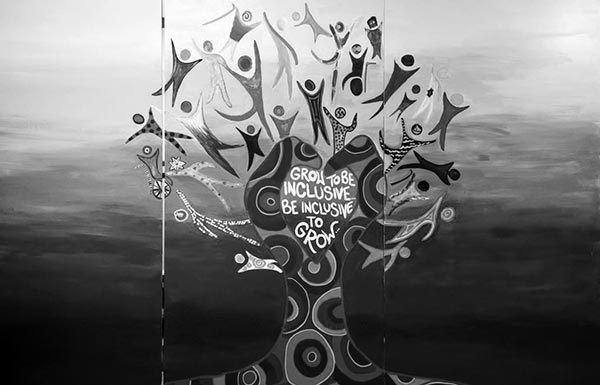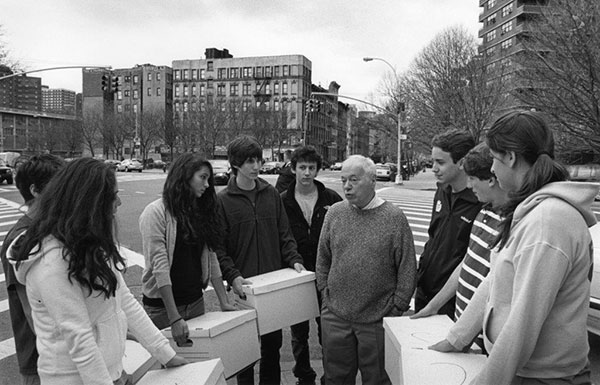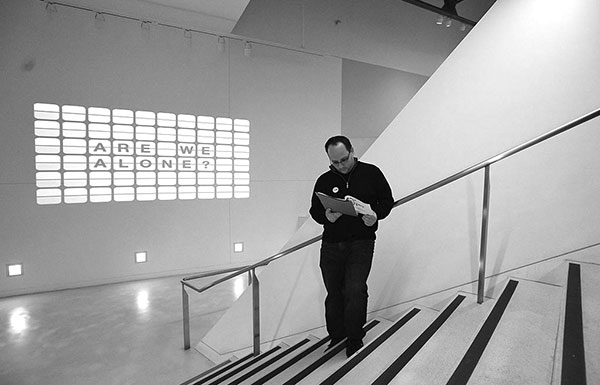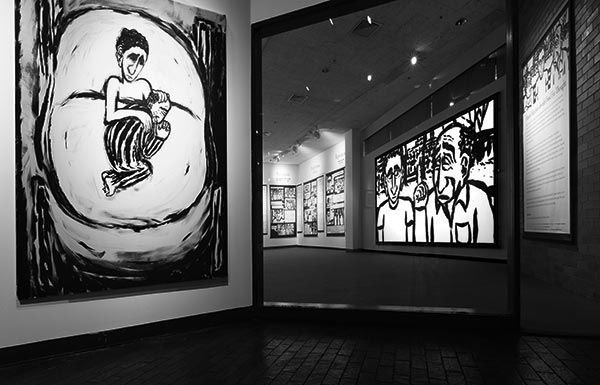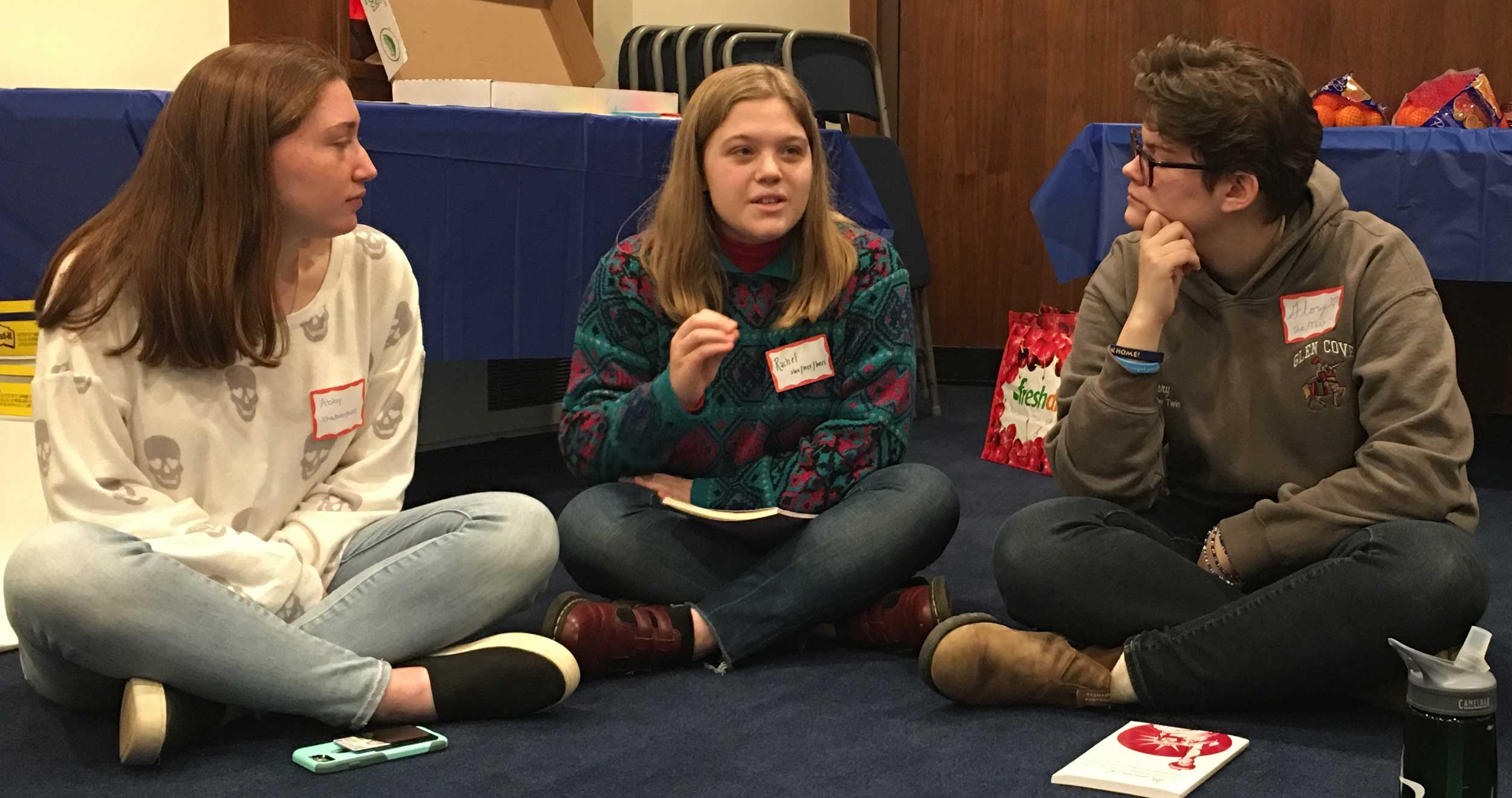
ARTICLEAll of Our Voices: Moving Traditions’ Kol Koleinu Teen Feminist Fellowship
To launch a wide-ranging conversation about feminism and activism, the teens at this year’s Kol Koleinu retreat were asked to think about their personal, emotional experiences and priorities.
In response to the prompt, “What upsets you most right now about how sexism affects your life and the lives of people you love,” participants wrote their answers on Post-it notes that were then affixed to the wall and shared with the group. Several of the notes were about gender stereotypes and the double bind; others addressed body image; some took on issues related to sports. Even as clusters of Post-its revealed persistent themes, each person had the space to think about what was most significant to her.
“We want the teens to explore topics and change-making strategies that are authentic to them, while also taking risks,” says Jennifer Anolik, Moving Traditions’ Curriculum Manager, who runs Kol Koleinu. “Risk-taking is important to feminism, and to creating change.”
This year, with the onset of the COVID-19 pandemic, resilience and adaptability have also become major themes. The November retreat was the first time that many of the 2019-2020 Kol Koleinu fellowship participants were able to meet in-person, but COVID-19 has made a second in-person meeting impossible. The program’s regular online meetings, and its vibrant online community, have taken on new significance. Kol Koleinu participants are now striving to support each other and reimagine new ways to complete their fellowship projects. As an unexpected crisis has intruded on their plans, they are gaining insight into the usefulness of being able to revise their expectations, pivot, and find alternative ways to meaningfully advance their change-making work.
Even before social distancing became a priority, Kol Koleinu operated primarily online so that it could connect teens across the country, and reach a range of Jewish communities. There are 14 students in the current cohort. The program is offered by Moving Traditions, in collaboration with NFTY and USY.
“Moving Traditions added Kol Koleinu to its offerings two years ago, initially with the support of a grant from Hadassah. We discovered a related project that was underway through NFTY in New York, spearheaded by a former Rosh Hodesh program participant, and soon joined forces," says Rabbi Tamara Cohen, Moving Traditions’ VP and Chief of Program Strategy. “We aspired to offer something to older teens—particularly those who had participated in Rosh Hodesh and were looking to build on their experiences, but also others who ready to take a next step in their leadership, activism, and ability to make feminist change as Jewish teens.”
With the leadership of Anolik and Rabbi Cohen, Kol Koleinu is one of Moving Traditions’ many educational offerings driven by its mission to “embolden teens by fostering self-discovery, challenging sexism, and inspiring a commitment to Jewish life and learning.” Though all of the teens in this year’s cohort identify as women, in the past there was a male participant and a few participants who identified as genderqueer. Indeed, the fellowship’s name itself—which means “All of Our Voices”—is meant to “. . . signal a feminism that is gender inclusive and a vision of a community that truly elevates and celebrates all voices. In many Jewish communities in the past, and in some still today, the voices of women and sexual and gender minorities have been quieted, silenced, and/or sexualized. This program envisions a community where all voices are heard and taken seriously.”
Kol Koleinu seeks to help participants create change in diverse Jewish communities across the country—their Jewish communities. It also responds to very real concerns expressed by Jewish teens today.
Jennifer Anolik points to the Jewish Education Project’s GenZ Now: Jewish Teens Research Study. In a survey of Jewish teens who were asked about “which problems the teens they know need help with,” 68% of female respondents said “self-esteem issues” and 55% said “challenging sexism.” In helping young people to develop leadership qualities and empowering them to become agents of change, Kol Koleinu is responding to needs expressed by Jewish young women themselves.
Anolik and the fellowship participants meet regularly online to explore topics including theories of activism as well as the stories of famous—and not-so-famous—Jewish activists. Through these examples, the teens see that they, too, may be able to enact change. As their ideas develop, Anolik explains, it is critical to ensure that young people feel supported in their change-making.
“There’s this idea of the feminist activist who is always on her own, working solo,” Anolik says. “We try to break down that stereotype.”
The fellowship offers opportunities for the teens to build community and learn from one another. Each participant chooses and works to become an expert on a topic that relates to feminism (such as reproductive justice, racial justice, gender and Judaism, and intersectional identities). They then share their new expertise with the rest of the group and, through teaching, have an enormously beneficial learning experience. In this model, Anolik provides structure and guidance while encouraging the teens to “take up a lot of space” in the meetings.
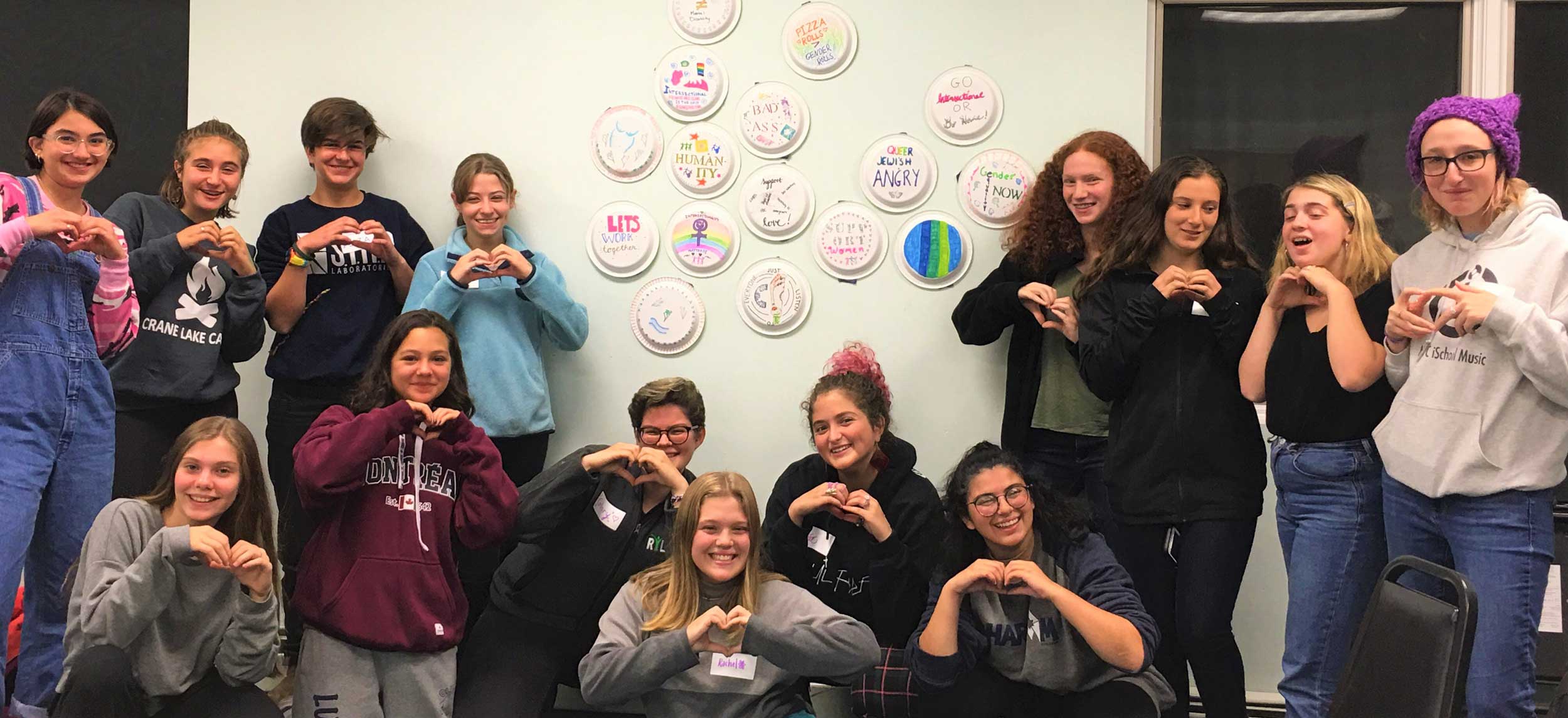
The final core component of the fellowship is completing an activist project. Participants must first propose their project ideas (working individually or in small groups). Based on their proposals, they are then matched up with mentors—adults who have worked as activists or advocates in relevant areas. The teens are encouraged to check in on a semi-regular basis and learn from their mentors’ experience. The goal is to ensure that young people are not only empowered, but also prepared.
Sometimes “learning from the experience of others” is the change-making project. This year, one of the Kol Koleinu participants is creating a podcast featuring conversations with women in STEM (or science, technology, engineering, and math). The podcast’s creator decided to find out what it is actually like to work in those fields as a Jewish woman. What are the possibilities and challenges, and how might a young woman prepare to face them? Do Jewish women who work in STEM experience sexism? If so, what do they do?
Other Kol Koleinu teens are creating workshops to educate their peers on topics ranging from voting to sex education. One participant planned to do a project that would rally her synagogue community around the importance of sustainability. Unfortunately, the in-person version of the project has been delayed due to COVID-19.
“Activism takes time. Change takes time,” Anolik reminds this year’s Kol Koleinu participants. “Some projects can be done in a few months; some take years.” As the end of the term approaches, Moving Traditions is honoring the already impressive work of the teens, and encouraging them to persevere. In many ways, their work has only just begun.
By Miriam R. Haier, for The Covenant Foundation
More to Consider
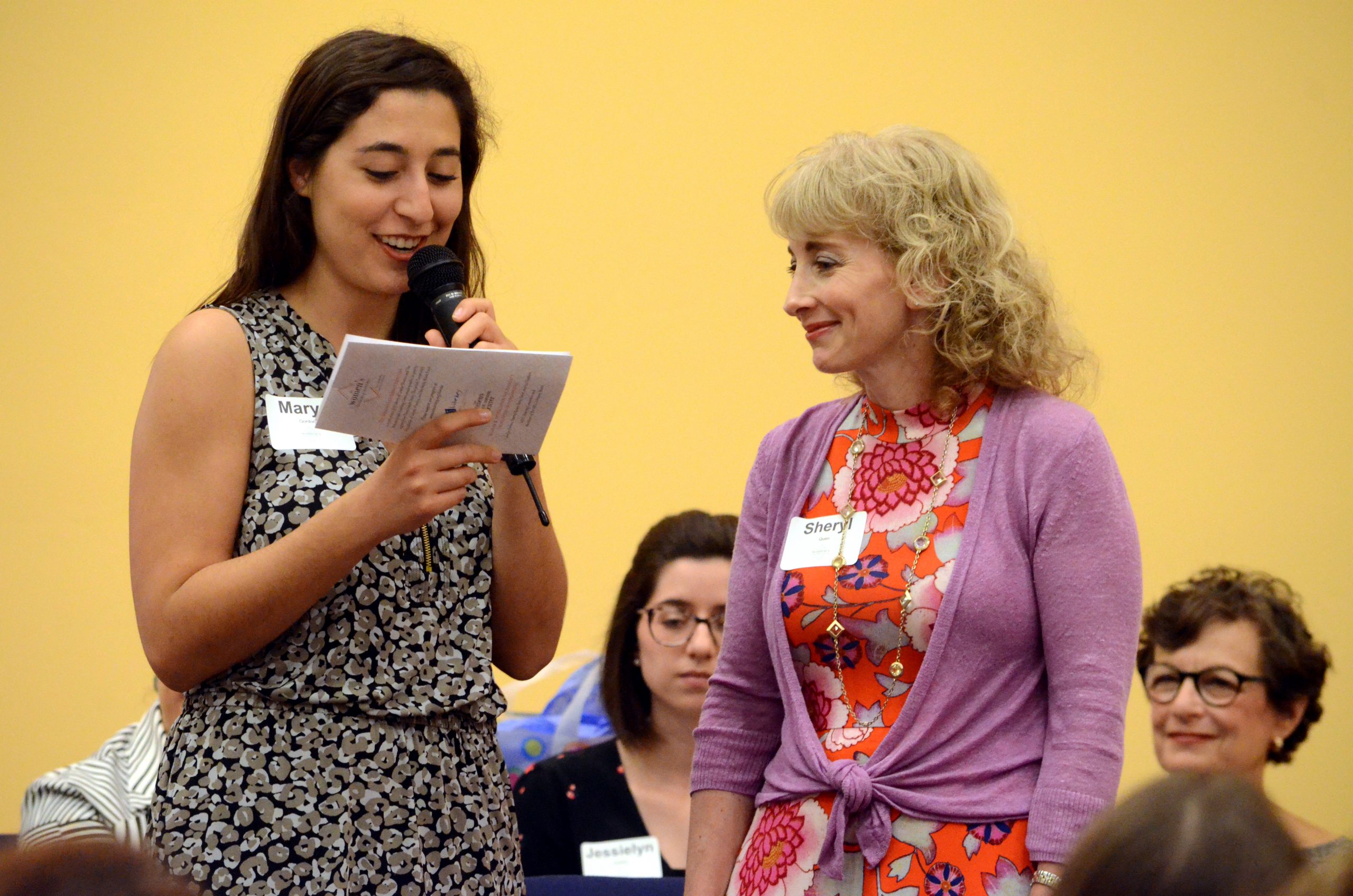
Jewish Women Change the Landscape of Communal Life Through Mentorship and Study
996
